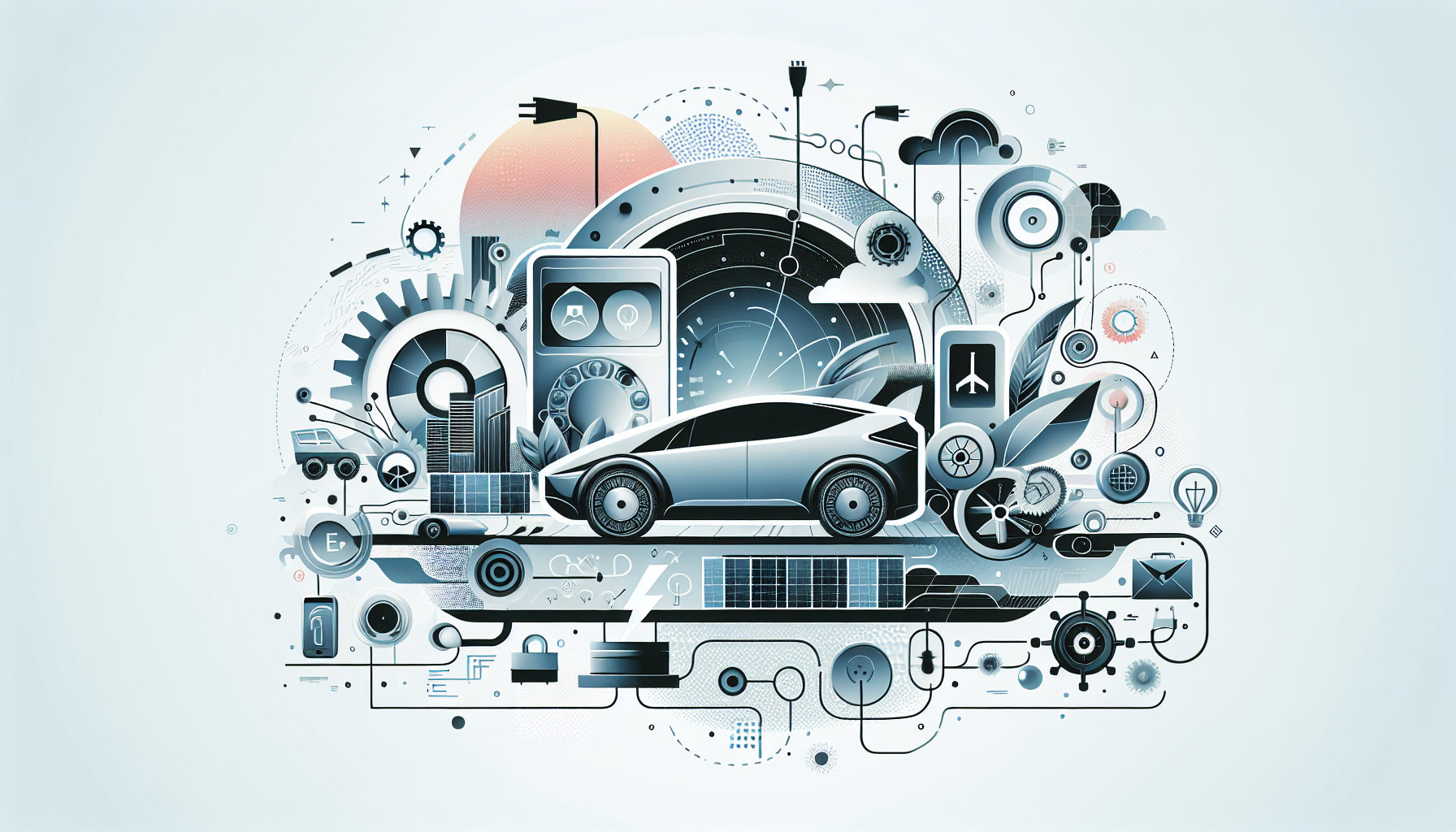
The Future of Electric Vehicles: Advancements, Challenges, and What Lies Ahead
Electric Vehicles EV Technology Sustainable Transportation Automotive Industry Green Energy EV Advancements Challenges in EVs Future of Transportation
The Future of Electric Vehicles: Advancements, Challenges, and What Lies Ahead
Electric vehicles (EVs) are no longer a distant dream of the future—they are a reality today, transforming the automotive industry and our approach to transportation. With increasing concerns about climate change and the need for sustainable energy solutions, EVs are gaining momentum. But what does the future hold for electric vehicles? In this post, we’ll explore the latest advancements in EV technology, the challenges the industry faces, and the exciting possibilities that lie ahead.
Advancements in Electric Vehicle Technology
The electric vehicle industry has made significant strides in recent years, with advancements in battery technology, charging infrastructure, and vehicle design leading the way.
Battery Technology
At the heart of every electric vehicle is its battery. Recent developments in lithium-ion battery technology have increased energy density, reduced costs, and extended the lifespan of batteries. These improvements mean that modern EVs can travel longer distances on a single charge, making them more practical for everyday use.
Beyond lithium-ion, researchers are exploring solid-state batteries, which promise even greater energy density, faster charging times, and enhanced safety. While still in the development phase, solid-state batteries could be a game-changer for the EV industry.
Charging Infrastructure
Charging infrastructure is rapidly expanding, with more public charging stations being installed worldwide. Fast charging networks, such as Tesla's Supercharger network, have made it possible to charge an EV in minutes rather than hours. Additionally, advances in wireless charging technology could soon allow for seamless, cable-free charging at home or on the go.
Vehicle Design and Performance
Electric vehicles are no longer just about sustainability—they also offer impressive performance. Many EVs now boast rapid acceleration, quiet operation, and low maintenance costs. Automakers are also focusing on innovative designs, with EVs offering more interior space due to the absence of a traditional engine and transmission.
Automated and autonomous driving technologies are increasingly being integrated into EVs, paving the way for smarter and safer transportation systems in the future.
Challenges Facing the Electric Vehicle Industry
While the future of electric vehicles is promising, the industry still faces several challenges that need to be addressed to achieve widespread adoption.
Battery Cost and Supply Chain
Despite improvements, the cost of EV batteries remains a significant barrier. Additionally, the supply chain for key battery materials, such as lithium, cobalt, and nickel, faces pressure from increasing demand. Ensuring a stable and sustainable supply of these materials is crucial for the continued growth of the EV market.
Charging Infrastructure Gaps
While charging networks are expanding, there are still gaps in coverage, particularly in rural and underserved areas. Ensuring that EV drivers have access to convenient and reliable charging options is essential for the broader adoption of electric vehicles.
Range Anxiety
Range anxiety—the fear that an EV will run out of power before reaching its destination—remains a concern for many potential buyers. Although battery ranges are improving, educating consumers about actual driving ranges and the availability of charging stations is necessary to alleviate these fears.
The Future of Electric Vehicles
The future of electric vehicles is bright, with many exciting developments on the horizon. As battery technology continues to advance, we can expect to see longer ranges, faster charging, and lower costs, making EVs more accessible to a wider audience.
Automakers are also exploring new vehicle formats, such as electric trucks, buses, and even aircraft, expanding the reach of electric mobility beyond passenger cars. The integration of renewable energy sources, such as solar and wind power, with EV charging infrastructure will further enhance the sustainability of electric vehicles.
Furthermore, the rise of autonomous electric vehicles could revolutionize transportation, leading to more efficient, safer, and environmentally friendly travel options.
Conclusion
Electric vehicles represent a critical step towards a more sustainable future. While challenges remain, the advancements in EV technology and infrastructure are paving the way for widespread adoption. As we look to the future, it's clear that electric vehicles will play a central role in shaping the transportation landscape for years to come.
Thank you for reading, and stay tuned for more insights and tips as we continue our tech journey together!